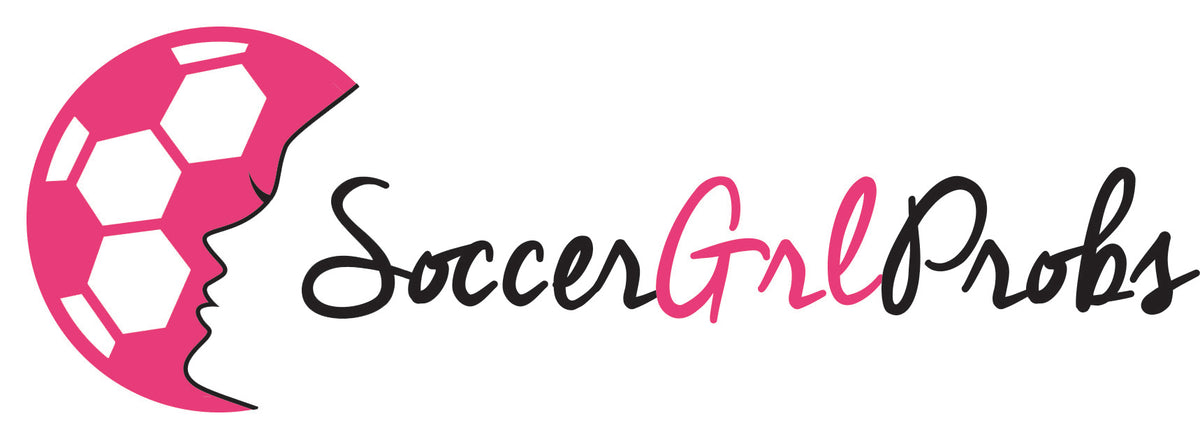
For an athlete transitioning into what they might humorously call a "NARP" (Non-Athletic Regular Person), this is one of the most underrated difficult transitions an athlete can face. Whether due to injury, graduating, a shift in priorities, or any other reason, adjusting to a lifestyle less focused on intense athleticism can be challenging and daunting. What's important to remember is it is also an opportunity for growth and reinvention.
Here are the ways we have tried our best to navigate our own transition into NARP life:
1. Embrace the Identity Shift with Positivity
- Acknowledge the change: It’s okay to feel a sense of loss if your identity was closely tied to being an athlete. It IS a loss, and something to mourn. Embracing this new chapter of your life, while also honoring your athletic past is the balance we all hope to achieve. It may not feel like it, but being an athlete is just one phase of your life, and you can carry the lessons learned—like discipline, resilience, and teamwork—into other areas.
- Your worth is not equal to your athletic achievements: It’s easy to feel like you’re “less than” when you're no longer performing at a high athletic level. However, recognize that you’re still you, and your worth isn’t tied solely to your athletic achievements and that you are so much more than your sport. This takes time.
2. Stay Physically Active, but in New Ways
- You don't have to achieve the feeling of dying during your workouts anymore, congrats!: Transitioning from competitive sports to a more regular, non-competitive fitness routine can help maintain health and well-being. Consider activities like yoga, swimming, cycling, or hiking, which can provide a great workout without the intensity of competition. You will want to resist these types of workouts at first, but diversifying your training will help you find new things you love and enjoy while balancing them with the ways you already love working out.
- Performance doesn't have to be the ultimate goal: It is ok to shift from performance-oriented goals (like hitting specific times or scores) to more enjoyment-based goals. This could mean doing activities you genuinely love or trying something new, like dance, rock climbing, or recreational sports that focus on fun rather than competition. You may also STILL want performance orientated goals, and that's awesome too! Maybe you want to train for a half-marathon or try a fitness competition. New goals can help you to feel the drive and motivation you're itching for.
-
Strength training and mobility: Even if you’re no longer training for a specific sport, strength training and flexibility exercises can help maintain mobility and prevent injury as you age. Now is the time to allow your body to heal from the demands of your sport and rehabilitate.
3. Redefine Success Beyond Athletics
- Identify new passions: Just because you're no longer competing doesn’t mean you can’t pursue excellence in other areas. Whether it’s a career, a hobby, or a new skill, find something that brings you fulfillment.
-
Set new goals: Transitioning from being an athlete often means a new set of goals. Whether it’s mastering a new craft, advancing in your career, or learning a completely new discipline, give yourself something to work toward that excites you. Practicing discipline and work ethic can help fill a bucket that may be missing since soccer ended.
4. Maintain a Positive Body Image
- Reframe fitness: If you're no longer training at the same level as before, your body might change. Focus on staying healthy and strong in ways that make you feel good, rather than trying to maintain a specific physique tied to your athletic career.
-
Practice self-compassion: Try and let go of the tough expectations you put on yourself and be kind to yourself. It’s normal for your body and life priorities to change over time. Your body doesn't just serve as a tool for soccer anymore, it is the vehicle that will get you through the rest of your life! Take care of it and be proud of all that it has accomplished this far.
5. Support Your Mental Health
- Seek professional help if needed: Sometimes the emotional or psychological transition can be tough. It’s perfectly okay to seek guidance from a therapist, counselor, or sports psychologist to work through any identity or emotional challenges. We ALL feel the loss of losing our sport. To feel low after stopping playing is totally normal and you are not alone in this feeling.
- Build a new community: If sports were a major part of your social life, it can be tough to navigate the loss of that sense of camaraderie. Your teammates don't just stop being your friends because soccer ended anymore. Nurture these friendships if they are still positive for you. It can be really wonderful to be surrounded by those who know how you're feeling. In addition, seek out new social circles that share your evolving interests and values. You'd be a amazed by the fact that you can have other things in common with people other than SOCCER! ha!
6. Use the Athlete Mindset to Your Advantage
- Apply discipline and focus: Even though you're no longer training for sport-specific goals, the athlete mindset of discipline, consistency, and resilience is a great asset in any area of life. Use those qualities to excel in other pursuits. And incredibly large percentage of successful women in business were former athletes! You have advantages from your sport that you don't even realize!
-
Adapt and grow: Athletes are used to overcoming challenges and adapting to new circumstances—use that resilience to embrace your new role as a "NARP" in a way that leads to personal growth and fulfillment.
7. Engage in the Sports Community in a New Way
- Mentorship or coaching: If you’re passionate about the sport but no longer competing, consider coaching or mentoring younger athletes. It allows you to stay connected to the sport and share your knowledge without being a competitor.
-
Be a fan: You might find joy in supporting your former sport in a non-participatory way—whether that means attending games, following teams, or getting involved in community events.
Ultimately, the key is to accept that the transition from athlete to "NARP" doesn’t diminish your value or abilities. It's just another phase of life. By focusing on maintaining a healthy lifestyle, staying mentally flexible, and finding new sources of fulfillment, the transition can be both rewarding and empowering. And remember. we all struggle along this journey and it is an incredibly hard transition. Whatever you are feeling is totally normal. Be gentle with yourself through this journey!





شركة كيان لنقل العفش بالرياض والمدينة المنورة وجدة ومكة والطائف والدمام تقديم لكم دليل كامل لشركات نقل العفش بالمملكة العربية السعودية
https://mycanadafitness.com/ شركة كيان لنقل العفش
https://mycanadafitness.com/forum.html منتدي نقل العفش
https://mycanadafitness.com/movingfurnitureriyadh.html شركة نقل اثاث بالرياض
https://mycanadafitness.com/movingfurniturejaddah.html شركة نقل اثاث بجدة
https://mycanadafitness.com/movingfurnituremecca.html شركة نقل اثاث بمكة
https://mycanadafitness.com/movingfurnituretaif.html شركة نقل اثاث بالطائف
https://mycanadafitness.com/movingfurnituremadina.html شركة نقل اثاث بالمدينة المنورة
https://mycanadafitness.com/movingfurnituredammam.html شركة نقل اثاث بالدمام
https://mycanadafitness.com/movingfurniturekhobar.html شركة نقل اثاث بالخبر
https://mycanadafitness.com/movingfurnituredhahran.html شركة نقل اثاث بالظهران
https://mycanadafitness.com/movingfurniturejubail.html شركة نقل اثاث بالجبيل
https://mycanadafitness.com/movingfurnitureqatif.html شركة نقل اثاث بالقطيف
https://mycanadafitness.com/movingfurnitureahsa.html شركة نقل اثاث بالاحساء
https://mycanadafitness.com/movingfurniturekharj.html شركة نقل اثاث بالخرج
https://mycanadafitness.com/movingfurniturekhamismushit.html شركة نقل اثاث بخميس مشيط
https://mycanadafitness.com/movingfurnitureabha.html شركة نقل اثاث بابها
https://mycanadafitness.com/movingfurniturenajran.html شركة نقل اثاث بنجران
https://mycanadafitness.com/movingfurniturejazan.html شركة نقل اثاث بجازان
https://mycanadafitness.com/movingfurnitureasir.html شركة نقل اثاث بعسير
https://mycanadafitness.com/movingfurniturehail.html شركة نقل اثاث بحائل
https://mycanadafitness.com/movingfurnitureqassim.html شركة نقل عفش بالقصيم
https://mycanadafitness.com/movingfurnitureyanbu.html شركة نقل اثاث بينبع
https://mycanadafitness.com/movingfurnitureburaidah.html شركة نقل عفش ببريدة
https://mycanadafitness.com/movingfurniturehafralbatin.html شركة نقل عفش بحفر الباطن
https://mycanadafitness.com/movingfurniturerabigh.html شركة نقل عفش برابغ
https://mycanadafitness.com/movingfurnituretabuk.html شركة نقل عفش بتبوك
https://mycanadafitness.com/movingfurnitureasfan.html شركة نقل عفش بعسفان
https://mycanadafitness.com/movingfurnituresharora.html شركة نقل عفش بشرورة
https://mycanadafitness.com/companis-moving-riyadh.html شركات نقل العفش بالرياض
https://mycanadafitness.com/cars-moving-riyadh.html سيارات نقل العفش بالرياض
https://mycanadafitness.com/company-number-moving-riyadh.html ارقام شركات نقل العفش بالرياض
https://mycanadafitness.com/company-moving-jeddah.html شركات نقل العفش بجدة
https://mycanadafitness.com/price-moving-jeddah.html اسعار نقل العفش بجدة
https://mycanadafitness.com/company-moving-mecca.html شركات نقل العفش بمكة
شركة سكاي لخدمات نقل العفش والاثاث بالمنطقة العربية السعودية نحن نوفر خدمات نقل اثاث بالرياض ونقل عفش بالمدينة المنورة ونقل عفش بمكة ونقل عفش بالطائف نحن نقدم افضل نقل اثاث بخميس مشيط ونقل عفش بجدة
https://treeads.net/ شركة سكاي نقل العفش
https://treeads.net/blog.html مدونة لنقل العفش
https://treeads.net/movers-mecca.html شركة نقل عفش بمكة
https://treeads.net/movers-riyadh-company.html شركة نقل عفش بالرياض
https://treeads.net/all-movers-madina.html شركة نقل عفش بالمدينة المنورة
https://treeads.net/movers-jeddah-company.html شركة نقل عفش بجدة
https://treeads.net/movers-taif.html شركة نقل عفش بالطائف
https://treeads.net/movers-dammam-company.html شركة نقل عفش بالدمام
https://treeads.net/movers-qatif.html شركة نقل عفش بالقطيف
https://treeads.net/movers-jubail.html شركة نقل عفش بالجبيل
https://treeads.net/movers-khobar.html شركة نقل عفش بالخبر
https://treeads.net/movers-ahsa.html شركة نقل عفش بالاحساء
https://treeads.net/movers-kharj.html شركة نقل عفش بالخرج
https://treeads.net/movers-khamis-mushait.html شركة نقل عفش بخميس مشيط
https://treeads.net/movers-abha.html شركة نقل عفش بابها
https://treeads.net/movers-qassim.html شركة نقل عفش بالقصيم
https://treeads.net/movers-yanbu.html شركة نقل عفش بينبع
https://treeads.net/movers-najran.html شركة نقل عفش بنجران
https://treeads.net/movers-hail.html شركة نقل عفش بحائل
https://treeads.net/movers-buraydah.html شركة نقل عفش ببريدة
https://treeads.net/movers-tabuk.html شركة نقل عفش بتبوك
https://treeads.net/movers-dhahran.html شركة نقل عفش بالظهران
https://treeads.net/movers-rabigh.html شركة نقل عفش برابغ
https://treeads.net/movers-baaha.html شركة نقل عفش بالباحه
https://treeads.net/movers-asseer.html شركة نقل عفش بعسير
https://treeads.net/movers-mgmaa.html شركة نقل عفش بالمجمعة
https://treeads.net/movers-sharora.html شركة نقل عفش بشرورة
https://treeads.net/how-movers-furniture-yanbu.html كيفية نقل العفش بينبع
https://treeads.net/price-movers-furniture-yanbu.html اسعار نقل عفش بينبع
https://treeads.net/find-company-transfer-furniture-yanbu.html البحث عن شركات نقل العفش بينبع
https://treeads.net/transfer-furniture-khamis-mushit.html شركات نقل العفش بخميس مشيط
https://treeads.net/how-transfer-furniture-khamis-mushit.html كيفية نقل العفش بخميس مشيط
https://treeads.net/price-transfer-furniture-khamis-mushit.html اسعار نقل عفش بخميس مشيط
https://treeads.net/%D8%B4%D8%B1%D9%83%D8%A9-%D8%AC%D9%84%D9%8A-%D8%A8%D9%84%D8%A7%D8%B7-%D8%A8%D8%AC%D8%AF%D8%A9.html شركة جلي بلاط بجدة
https://treeads.net/%D8%B4%D8%B1%D9%83%D8%A9-%D8%AA%D9%86%D8%B8%D9%8A%D9%81-%D9%81%D9%84%D9%84-%D8%A8%D8%AC%D8%AF%D8%A9.html تنظيف فلل بجدة
https://treeads.net/company-transfer-furniture-jazan.html شركة نقل عفش بجازان
https://treeads.net/best-company-cleaning-jeddah-2020.html افضل شركة تنظيف بجدة
https://emcmee.blogspot.com/2022/08/transfer-furniture-jeddah.html
https://www.khedmeh.com/wall/blogs/post/12991
https://www.khedmeh.com/wall/blogs/12905
https://www.b-webdesign.org/dir-wowonder/read-blog/95246
https://www.b-webdesign.org/dir-wowonder/read-blog/95225
https://joyrulez.com/blogs/168166/%D8%B4%D8%B1%D9%83%D8%A7%D8%AA-%D9%86%D9%82%D9%84-%D8%A7%D9%84%D8%B9%D9%81%D8%B4-%D8%A8%D8%AC%D8%AF%D8%A9
https://joyrulez.com/blogs/168162/%D8%B4%D8%B1%D9%83%D8%A7%D8%AA-%D9%84%D9%86%D9%82%D9%84-%D8%A7%D9%84%D8%B9%D9%81%D8%B4-%D9%81%D9%8A-%D8%AC%D8%AF%D8%A9
https://demo.sngine.com/blogs/102320/%D9%86%D9%82%D9%84-%D8%B9%D9%81%D8%B4-%D8%A8%D8%AC%D8%AF%D8%A9
https://demo.sngine.com/blogs/101980/%D8%A7%D9%81%D8%B6%D9%84-%D8%B4%D8%B1%D9%83%D8%A9-%D9%86%D9%82%D9%84-%D8%B9%D9%81%D8%B4-%D8%A8%D8%AC%D8%AF%D8%A9-emc-mee-com-transfer-furniture
https://emc-mee.page.tl/%26%231575%3B%26%231585%3B%26%231602%3B%26%231575%3B%26%231605%3B-%26%231588%3B%26%231585%3B%26%231603%3B%26%231575%3B%26%231578%3B-%26%231606%3B%26%231602%3B%26%231604%3B-%26%231593%3B%26%231601%3B%26%231588%3B-%26%231576%3B%26%231580%3B%26%231583%3B%26%231577%3B.htm
https://ataralmadinah662300791.wordpress.com/2022/09/05/%d8%b4%d8%b1%d9%83%d8%a9-%d9%86%d9%82%d9%84-%d8%b9%d9%81%d8%b4-%d9%85%d9%86-%d8%ac%d8%af%d8%a9-%d8%a7%d9%84%d9%89-%d8%aa%d8%a8%d9%88%d9%83-%d9%85%d8%b9-%d8%a7%d9%84%d8%aa%d8%ba%d9%84%d9%8a%d9%81/
https://atar-almadinah.over-blog.com/2022/09/transfer-furniture-jeddah-tabuk.html
https://eslamiatview.blogspot.com/2022/09/transfer-furniture-.html
https://is.gd/bJ2Dmy
https://is.gd/ypnMEL
https://is.gd/BLejy1
https://is.gd/nHp6N4
https://is.gd/BtLzld
https://is.gd/zxECuM
https://is.gd/i4mxfM
https://is.gd/DsIPbe
https://cutt.ly/tCzFRi0
https://cutt.ly/ECzF3dA
https://cutt.ly/oCzGwW6
https://is.gd/GfoG2V
https://is.gd/mX0WTb
https://cutt.ly/ACzGRPF
https://is.gd/SLAkcT
https://cutt.ly/TCzGPlc
https://rb.gy/doq4qv
https://rb.gy/f6lina
https://rb.gy/lfqg9r
https://rb.gy/nrko3x
https://rb.gy/xhuggi
https://rb.gy/lbp0ea
https://rb.gy/wsgbj0
https://rb.gy/eumloo
https://rb.gy/foooha
https://rb.gy/po1lxc
https://rb.gy/fqpdsz
https://is.gd/9SdaEc
https://cutt.ly/qCzJbUt
https://www.vingle.net/posts/4729609
https://www.vingle.net/posts/4729610
https://rb.gy/eimwki
https://rb.gy/ionvkh
https://cutt.ly/7CzZUSh
https://is.gd/DEo87A
https://cutt.ly/eCzZAiQ
https://is.gd/rUreg8
https://hackmd.io/moversjeddah/By88RRJxs https://jeddah.peatix.com/ https://unsplash.com/moversjeddah
https://moversriyadhcom.wordpress.com/2022/09/09/%d8%b4%d8%b1%d9%83%d8%a7%d8%aa-%d9%86%d9%82%d9%84-%d8%b9%d9%81%d8%b4-%d8%a8%d9%85%d9%83%d8%a9/
https://moversriyadhcom.wordpress.com/2022/09/09/%d8%a7%d9%81%d8%b6%d9%84-%d8%b4%d8%b1%d9%83%d8%a9-%d9%86%d9%82%d9%84-%d8%b9%d9%81%d8%b4-%d8%a8%d8%a7%d9%84%d8%a7%d8%ad%d8%b3%d8%a7%d8%a1/
https://moversriyadhcom.wordpress.com/2022/09/10/%d8%a7%d9%81%d8%b6%d9%84-%d8%b4%d8%b1%d9%83%d8%a9-%d9%86%d9%82%d9%84-%d8%b9%d9%81%d8%b4-%d8%a8%d8%a7%d9%84%d8%ae%d8%a8%d8%b1/
https://moversriyadhcom.wordpress.com/2022/09/10/%d8%a7%d9%81%d8%b6%d9%84-%d8%b4%d8%b1%d9%83%d8%a9-%d9%86%d9%82%d9%84-%d8%b9%d9%81%d8%b4-%d8%a8%d8%ac%d8%af%d8%a9/
https://moversfurniture.over-blog.com/transfer-jeddah.html
https://moversfurniture.over-blog.com/movers-furniture-jeddah.html
https://hackmd.io/@jeddahmovers/rJMNqojxj
https://www.skreebee.com/read-blog/115087
https://oktob.io/posts/43829
https://telegra.ph/%D8%B4%D8%B1%D9%83%D8%A9-%D9%86%D9%82%D9%84-%D8%B9%D9%81%D8%B4-%D9%85%D9%86-%D8%AC%D8%AF%D8%A9-%D8%A7%D9%84%D9%89-%D8%AA%D8%A8%D9%88%D9%83-09-12
https://ataralmadinah662300791.wordpress.com/2022/09/12/%d8%a7%d8%b1%d9%82%d8%a7%d9%85-%d8%b4%d8%b1%d9%83%d8%a7%d8%aa-%d9%86%d9%82%d9%84-%d8%a7%d9%84%d8%b9%d9%81%d8%b4-%d8%a8%d8%ac%d8%af%d8%a9/
https://rb.gy/rl7jzc
https://cutt.ly/NCZt6Jm
https://is.gd/A89d52
https://atar-almadinah.over-blog.com/numbers-company-transfer-furniture.html
https://oktob.io/posts/43903
https://telegra.ph/%D8%A7%D8%B1%D9%82%D8%A7%D9%85-%D8%B4%D8%B1%D9%83%D8%A7%D8%AA-%D9%86%D9%82%D9%84-%D8%B9%D9%81%D8%B4-%D9%88%D8%A7%D8%AB%D8%A7%D8%AB-%D8%A8%D8%AC%D8%AF%D8%A9-09-12
https://www.skreebee.com/read-blog/115193
https://hackmd.io/jeddahmovers/B1Is9m6li https://hackmd.io/jeddahmovers/B1Ux7Vpxj
https://hackmd.io/@jeddahmovers/S1g3xLaxj
https://addandclick.com/read-blog/94597
https://webyourself.eu/blogs/36223/%D8%A7%D8%B1%D9%82%D8%A7%D9%85-%D8%B4%D8%B1%D9%83%D8%A7%D8%AA-%D9%86%D9%82%D9%84-%D8%B9%D9%81%D8%B4-%D9%88%D8%A7%D8%AB%D8%A7%D8%AB-%D8%A8%D8%AC%D8%AF%D8%A9
https://moversriyadhcom.wordpress.com/2022/09/13/%d9%90%d8%b4%d8%b1%d9%83%d8%a9-%d9%86%d9%82%d9%84-%d8%b9%d9%81%d8%b4-%d8%a8%d8%ac%d8%a7%d8%b2%d8%a7%d9%86/
https://www.scoop.it/topic/rcutioni/p/4135811249/2022/09/19/25-0545970806-65
https://www.scoop.it/topic/rcutioni/p/4135811200/2022/09/19/0500175959-55
https://www.scoop.it/topic/rcutioni/p/4135809640/2022/09/19/0500175959-45
https://www.scoop.it/topic/rcutioni/p/4135810312/2022/09/19/0500175959-50
https://ko-fi.com/jumperads49641
https://hackmd.io/jumperads/Syzi0PCei https://hackmd.io/jumperads/B1Z2f_Cgj
https://khairyayman85.wixsite.com/jumperads
https://allmoversinriyadh.wordpress.com/2022/09/15/%d8%a7%d9%81%d8%b6%d9%84-%d8%b4%d8%b1%d9%83%d8%a9-%d8%aa%d9%86%d8%b8%d9%8a%d9%81-%d8%a8%d9%8a%d9%86%d8%a8%d8%b9/
https://allmoversinriyadh.wordpress.com/2022/09/14/%d8%a7%d9%81%d8%b6%d9%84-%d8%b4%d8%b1%d9%83%d8%a9-%d8%aa%d9%86%d8%b8%d9%8a%d9%81-%d8%a8%d8%ae%d9%85%d9%8a%d8%b3-%d9%85%d8%b4%d9%8a%d8%b7/
https://allmoversinriyadh.wordpress.com/2022/09/14/%d8%a7%d9%81%d8%b6%d9%84-%d8%b4%d8%b1%d9%83%d8%a9-%d8%aa%d9%86%d8%b8%d9%8a%d9%81-%d8%a8%d8%a7%d9%84%d8%b1%d9%8a%d8%a7%d8%b6-2/
https://allmoversinriyadh.wordpress.com/2022/04/07/%d8%a7%d9%81%d8%b6%d9%84-%d8%b4%d8%b1%d9%83%d8%a9-%d8%aa%d9%86%d8%b8%d9%8a%d9%81-%d8%a8%d8%a7%d9%84%d8%b1%d9%8a%d8%a7%d8%b6/
https://www.atar-almadinah.com/%D8%B4%D8%B1%D9%83%D8%A9-%D8%AA%D8%AE%D8%B2%D9%8A%D9%86-%D8%B9%D9%81%D8%B4-%D8%A8%D8%A7%D8%A8%D9%87%D8%A7.html
https://www.atar-almadinah.com/%D8%B4%D8%B1%D9%83%D8%A9-%D8%AA%D8%BA%D9%84%D9%8A%D9%81-%D8%A7%D9%84%D8%B9%D9%81%D8%B4-%D8%A8%D8%A7%D8%A8%D9%87%D8%A7.html
https://www.atar-almadinah.com/%D8%B4%D8%B1%D9%83%D8%A9-%D8%AA%D8%BA%D9%84%D9%8A%D9%81-%D8%A7%D8%AB%D8%A7%D8%AB-%D8%A8%D8%A7%D9%84%D8%B1%D9%8A%D8%A7%D8%B6.html
https://www.atar-almadinah.com/%D8%B4%D8%B1%D9%83%D8%A9-%D8%A7%D9%84%D8%B5%D9%81%D8%B1%D8%A7%D8%AA-%D9%84%D9%86%D9%82%D9%84-%D8%A7%D9%84%D8%B9%D9%81%D8%B4-%D8%A8%D8%A7%D9%84%D8%B1%D9%8A%D8%A7%D8%B6.html
https://www.atar-almadinah.com/%D8%B4%D8%B1%D9%83%D8%A9-%D9%86%D9%82%D9%84-%D8%B9%D9%81%D8%B4-%D8%A8%D8%A7%D8%AD%D8%AF-%D8%B1%D9%81%D9%8A%D8%AF%D8%A9.html
https://www.atar-almadinah.com/%D8%A7%D8%B1%D8%AE%D8%B5-%D8%B4%D8%B1%D9%83%D8%A7%D8%AA-%D9%86%D9%82%D9%84-%D8%B9%D9%81%D8%B4-%D8%A8%D9%8A%D9%86-%D8%A7%D9%84%D9%85%D8%AF%D9%86.html
https://www.atar-almadinah.com/%D8%B4%D8%B1%D9%83%D8%A9-%D8%AA%D8%AE%D8%B2%D9%8A%D9%86-%D8%B9%D9%81%D8%B4-%D8%A8%D8%A7%D8%A8%D9%87%D8%A7.html
https://www.atar-almadinah.com/%D8%B4%D8%B1%D9%83%D8%A9-%D8%AA%D8%BA%D9%84%D9%8A%D9%81-%D8%A7%D9%84%D8%B9%D9%81%D8%B4-%D8%A8%D8%A7%D8%A8%D9%87%D8%A7.html
https://www.atar-almadinah.com/%D8%B4%D8%B1%D9%83%D8%A9-%D8%AA%D8%BA%D9%84%D9%8A%D9%81-%D8%A7%D8%AB%D8%A7%D8%AB-%D8%A8%D8%A7%D9%84%D8%B1%D9%8A%D8%A7%D8%B6.html
https://www.atar-almadinah.com/%D8%B4%D8%B1%D9%83%D8%A9-%D8%A7%D9%84%D8%B5%D9%81%D8%B1%D8%A7%D8%AA-%D9%84%D9%86%D9%82%D9%84-%D8%A7%D9%84%D8%B9%D9%81%D8%B4-%D8%A8%D8%A7%D9%84%D8%B1%D9%8A%D8%A7%D8%B6.html
https://www.atar-almadinah.com/%D8%B4%D8%B1%D9%83%D8%A9-%D9%86%D9%82%D9%84-%D8%B9%D9%81%D8%B4-%D8%A8%D8%A7%D8%AD%D8%AF-%D8%B1%D9%81%D9%8A%D8%AF%D8%A9.html
https://www.atar-almadinah.com/%D8%A7%D8%B1%D8%AE%D8%B5-%D8%B4%D8%B1%D9%83%D8%A7%D8%AA-%D9%86%D9%82%D9%84-%D8%B9%D9%81%D8%B4-%D8%A8%D9%8A%D9%86-%D8%A7%D9%84%D9%85%D8%AF%D9%86.html
شركة مكافحة حشرات بالقطيف وكذلك شركة كشف تسربات المياه بالقطيف وتنظيف خزانات وتنظيف الموكيت والسجاد والكنب والشقق والمنازل بالقطيف وتنظيف الخزانات بالقطيف وتنظيف المساجد بالقطيف شركة تنظيف بالقطيف تنظيف المسابح بالقطيف
https://jumperads.com/qatif/anti-insects-company-qatif.html شركة مكافحة حشرات بالقطيف
https://jumperads.com/qatif/water-leaks-detection-company-qatif.html شركة كشف تسربات بالقطيف
https://jumperads.com/qatif/qatif-company-surfaces.html شركة عزل اسطح بالقطيف
https://jumperads.com/qatif/qatif-company-sewage.html شركة تسليك مجاري بالقطيف
https://jumperads.com/qatif/qatif-cleaning-company-sofa.html شركة تنظيف كنب بالقطيف
https://jumperads.com/qatif/qatif-cleaning-company-mosques.html شركة تنظيف مساجد بالقطيف
https://jumperads.com/qatif/qatif-cleaning-company-Carpet.html شركة تنظيف سجاد بالقطيف
https://jumperads.com/qatif/qatif-cleaning-company-tanks.html شركة تنظيف خزانات بالقطيف
https://jumperads.com/qatif/qatif-cleaning-company-swimming-bath.html شركة تنظيف وصيانة مسابح بالقطيف
https://jumperads.com/qatif/qatif-cleaning-company-Furniture.html شركة تنظيف الاثاث بالقطيف
https://jumperads.com/qatif/qatif-cleaning-company-home.html شركة تنظيف شقق بالقطيف
https://jumperads.com/qatif/qatif-cleaning-company-Carpets.html شركة تنظيف موكيت بالقطيف
https://jumperads.com/qatif/qatif-cleaning-company.html شركة تنظيف مجالس بالقطيف
https://jumperads.com/qatif/qatif-cleaning-company-house.html شركة تنظيف منازل بالقطيف
https://jumperads.com/qatif/qatif-cleaning-company-curtains.html شركة تنظيف ستائر بالقطيف
https://jumperads.com/qatif/qatif-cleaning-company-Villas.html شركة تنظيف فلل بالقطيف
https://jumperads.com/qatif/qatif-company-tile.html شركة جلي بلاط بالقطيف
Great article! I really appreciate how you highlighted the essential points and provided such valuable insights. It’s always great to see informative content that truly educates readers. I’m looking forward to reading more posts from you!
https://mmafightstore.com.au/